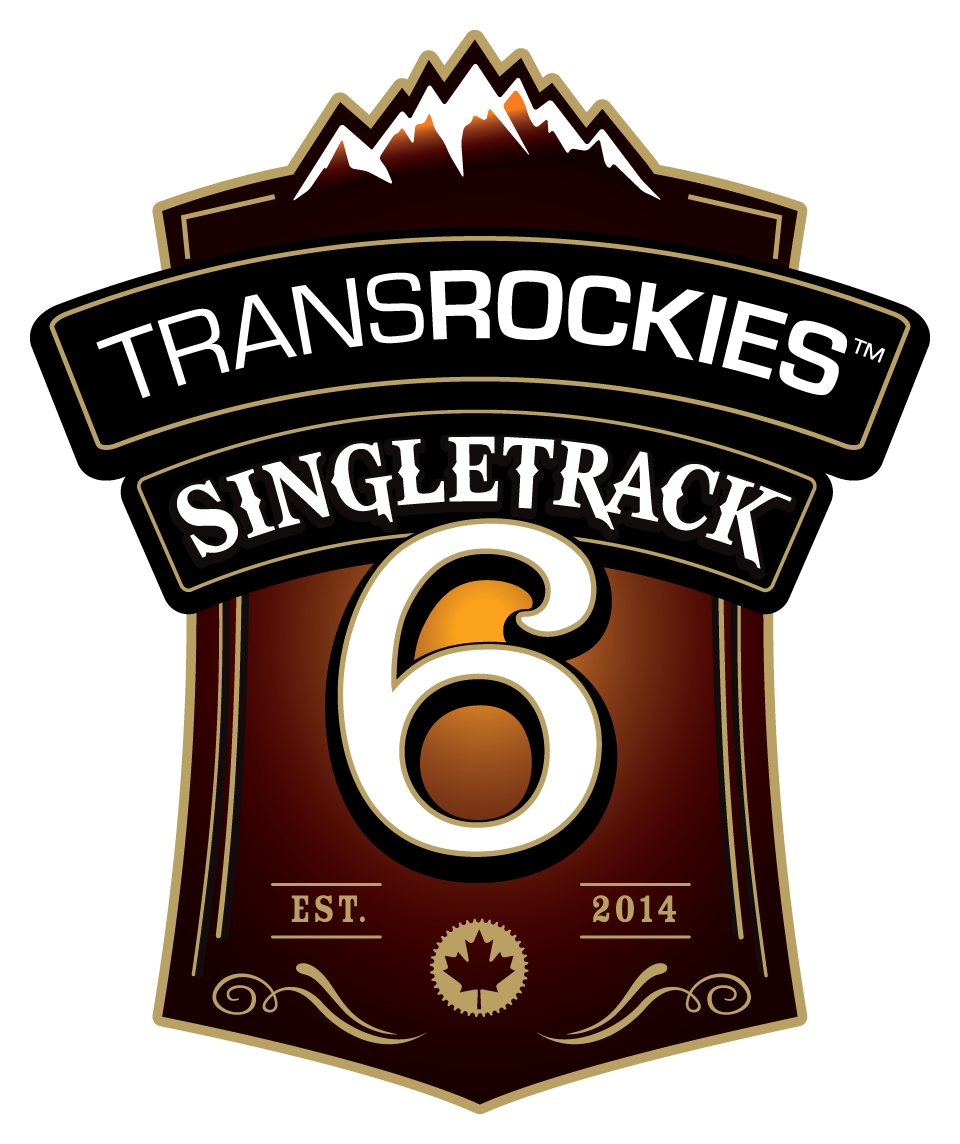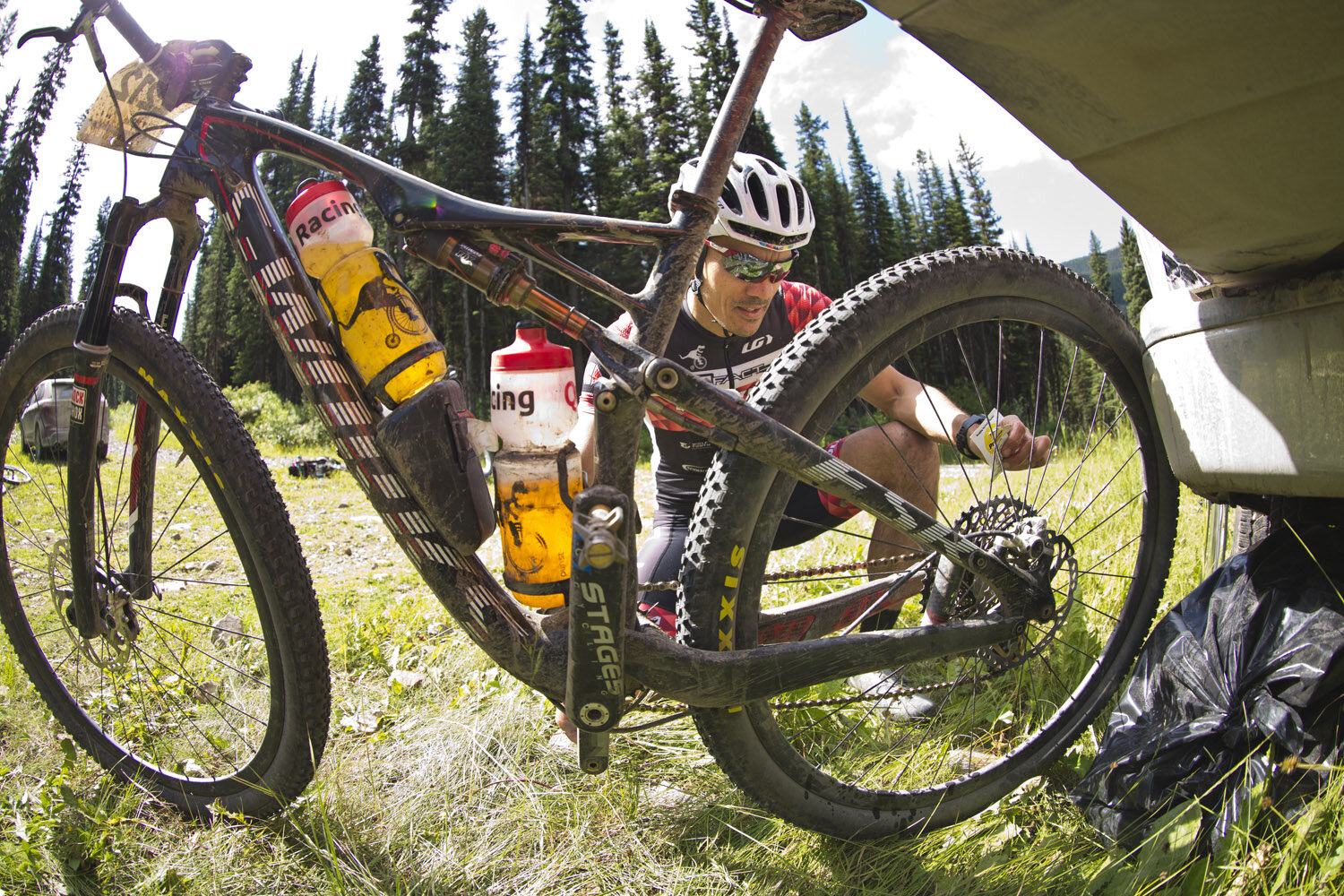What is the Best Mountain Bike for Stage Racing?
What is the best mountain bike for stage racing? It’s a question we get asked all the time, and for new racers, and even veterans who are new to our stage races—Moab Rocks and Singletrack 6—it’s certainly a valid one.
Finding the best mountain bike for stage racing is all about the right balance for you.
If you’ve never done a stage race, it’s hard to know what to expect, and that can make bike selection complicated. Each race has its own set of unique characteristics that need to be considered and Singletrack 6 is no exception. It’s an adventure, and having the right bike under you will help make it a gratifying and unforgettable experience! Buying a mountain bike is also a big investment, so it’s worth putting in the time to make sure you end up with the right one.
The truth is, there is no perfect bike for our stage races or any stage race for that matter. In the end, it comes down to which bike is right for YOU, your goals and your event. It’s a personal choice, but we’re here to help! To make the decision easier, we’ve put together some questions for you to consider.
But before we get to the questions, let’s take a practical look at the three main categories of mountain bike you’ll likely want to choose from.
Narrowing the options
While there are many types of mountain bikes on the market, not all are fit for stage racing. For example, a downhill racing bike would not be a good choice under any circumstances. They’re heavy and designed for one purpose only—getting down the mountain as quickly as possible.
For a stage race, you’ll want a mountain bike that is built for a mix of climbing and descending. Those fall into the loosely defined categories of Cross Country (XC), Trail and Enduro. Each will have a different aptitude when it comes to climbing and descending. Keep in mind, these aren’t rigid categories and manufacturers blur the lines between them. But, when we look at the majority of bikes in each category, we can find similarities.
Here’s a quick rundown:
XC
These will generally be the lightest type of mountain bike. They’re built for speed and their geometry and suspension will almost always favour climbing over descending.
Basic Specs
● Weight: 21lbs and up (depending on frame and components)
● Suspension: Front 100-130mm, Rear 0 (hardtail) -130mm
● Geometry: Head Tube Angle (HTA) 67-70 degrees
Trail
This is the jack-of-all-trades (trails)—at least out of the three types of mountain bikes we’re discussing here. They’ll be slacker than an XC bike, with a bit longer suspension. They’re a good choice if you want a mountain bike that’s a decent climber and descender but doesn’t necessarily excel at either one.
Basic Specs - H4
● Weight: 25lbs and up (depending on frame and components)
● Suspension: Front 130-150mm, Rear 0 (hardtail) -140mm
● Geometry: Head Tube Angle (HTA) 64-67 degrees
Enduro
Of the three bikes we would consider riding in a stage race, these will usually be the heaviest, and have the longest travel suspension. They’re also the least likely bike you’ll see people riding out on course. They’ll get you up the climb, but are best at getting you down as quickly as possible.
Basic Specs
● Weight: 30lbs and up (depending on frame and components)
● Suspension: Front 150-180mm, Rear 140+mm
● Geometry: Head Tube Angle (HTA) 64-66 degrees
Now, let’s talk about you!
Now that we have three possible bike choices in mind, it’s time to decide which one of them is right for you. Only you can make that decision, but we’ve come up with a couple of questions you can ask yourself to help hone in on the answer:
What are my strengths and weaknesses?
What do I want out of the event?
Let’s break these down...
Most people ride full suspension, but hardtails work too!
What are you good at?
A good starting point in deciding which bike is your best mountain bike for stage racing is to look at your strengths and weaknesses as a rider. And there are two main areas where those will come into play:
descending/technical riding
climbing
There are bikes that are designed to be fast descenders and bikes designed to be fast climbers. And still, there are others that attempt to straddle the line between the two. Do you excel on the climbs or the descents? It’s likely you have some idea how to answer this question, but the tough part comes in deciding what to do with the answer. Do you want a bike that will play up your strengths or mask our weaknesses?
Strengths vs. weaknesses
Only you can decide whether you prefer to play up your strengths or hide your weaknesses. Which choice will lead to better results is the subject of debate. There is no right or wrong answer, and no matter your preference, there is likely a coach out there that will be able to reinforce your decision.
Both schools of thought have their merits and each will affect your bike choice. For example, if you’re a great climber and a mediocre descender, and want to play up your strengths, a light XC bike should be your choice. On the other hand, if you want to even out your overall performance, a trail/all-mountain bike that smooths out the descents may be your best bet.
How you decide to handle your strengths and weaknesses is helpful in determining which bike is best for you. But that decision mainly hinges on the idea that your biggest concern is performance. And not all stage racers are out for the win.
Consider the fun factor!
What do you want out of the event?
Are results your main goal? Or do you have something else in mind? It’s important to ask yourself what you want out of your event as your bike choice may depend on it.
Maybe, rather than winning, your goal is to have fun and finish with a smile on your face, no matter how long you spend out on the trail. This is a great attitude to have going into a stage race and if this sounds like you, a good all-around trail bike should probably be your weapon of choice. It will be light enough to get you up the hill and slack enough to give you a fun ride down.
On the other hand, if your interest lies mainly in the descents, and you don’t care how hard you have to work to get to the top, an enduro bike might just be the ticket. Admittedly, of the three types of bikes we discuss here, this is probably the most unlikely pick. But if, for example, you’re chasing top times on Singletrack 6’s daily timed descents, this type of bike will almost certainly give you an edge.
At the other end of the spectrum, you’ll find the XC racing bikes. The pros and fast amateurs at the pointy end of the race will most likely be on one of these. Here you throw comfort out the window in exchange for speed. So, if results and crushing the climbs are goals for you, this is the bike you want. They’re light, and while riding one might mean less suffering on the climbs, they can be unforgiving on descents and through technical sections of singletrack.
The final piece of the puzzle
Choosing the best mountain bike for stage racing is a very personal choice. But once you’ve worked out your strengths, weaknesses and race goals, the decision becomes easier. The final piece of the puzzle is the race itself.
Every race has its own unique characteristics when it comes to terrain and length. And the amount of singletrack you’ll find in a mountain bike stage race can vary wildly. Some events include high mileage days with long sections of gravel road or double track. Others use shorter routes (relatively speaking) and are nearly all singletrack, much of it technical in nature. It’s up to you how you want to apply your strengths, weaknesses and race goals to bike selection for each different race. Find out as much as you can about the terrain and choose accordingly.
Is a trail bike the best option for you?
A note on Singletrack 6
Singletrack 6 is a technical race that includes steep black diamond difficulty climbs and descents and few road sections. We race different routes every year, so the course is always changing! That means you won’t have the benefit of knowing the route from one year to the next. But it also means a new and exciting adventure with every edition!
For most racers—those that are looking to challenge themselves, ride great singletrack, and finish happy and confident—a trail bike is the best option for Singletrack 6. Trail bikes excel in compromise. They’ll help give you the confidence to tackle technical descents, but they’re also light enough to get you to the top again and again (which you’ll also need in this race). So, if you’re embarking on new adventures and racing new routes every year, like we do in Singletrack 6, you can be confident a trail bike will get the job done no matter what you throw at it.
We want to hear from you!
What’s your weapon (mountain bike) of choice when it comes to stage racing? Why?
Do you consider yourself a climber or a descender? Or both?!
Let us know in the comments section below.







